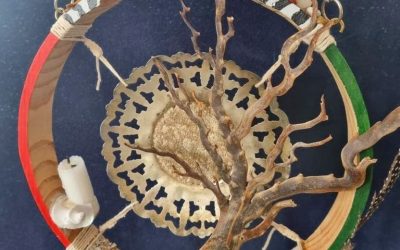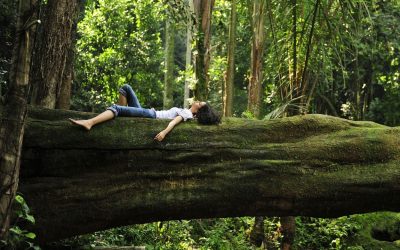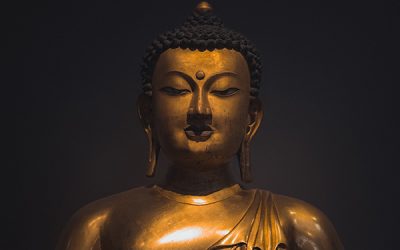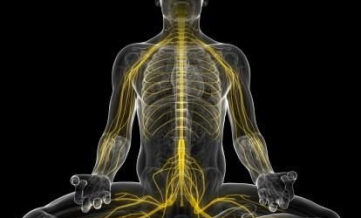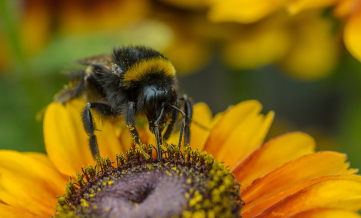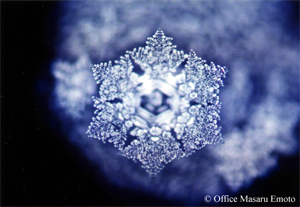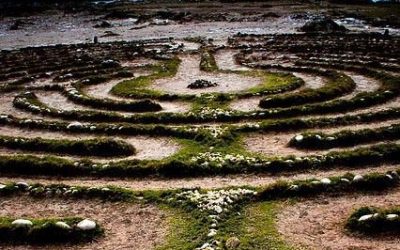“Becoming aware that the art I had been instinctively creating using sticks, stones, feathers and bones, is my unique medicine gift to the world, I completed my first “conscious” Talismanic Art Piece. I based it on my journey with Born as the Earth School so far.” – Alison Evans
BEZA Blogs
Let’s explore the teachings and practices of Zen Buddhism alongside Nature’s wisdom.
Artificial Intelligence vs Authentic Intelligence: A Zen Buddhist Perspective on Consciousness
“Everything we are talking about AI or computing power will never be able to beat the complexity that nature presents to us. The real intelligence is Nature’s Intelligence. AI is good, but AI is just a tool to Nature’s Intelligence. Nature’s Intelligence is four and half billion years old. To think that something that is less than a hundred years old can beat something that is four billion years is a bit of an extension.” – Agam Khare
Forest Bathing, Shinrin Yoku: What is it, and How to Practice it.
In a world that is constantly on the move, where stress and anxiety seem to be an integral part of our daily lives, there’s a Japanese practice that offers a refreshing escape into nature’s embrace. Its called Shinrin Yoku, or forest bathing, and it’s a profound way to reconnect with the natural world while reaping numerous health benefits. In this article, we’ll delve into the essence of Shinrin Yoku, explore what it means, and learn how to practice this ancient Japanese art.
The Effects of Inauthentic Expression & Deception on the Body
Often the social environment is partly to blame for deceptive activity. In holistic communities the perpetrator, victim, and witnessing community all share collective responsibility for maintaining honesty and equity in all relationships. Therefore, we each have a vital role to play in reducing inauthenticity in our friend, family, work, and social circles. Firstly, role-modelling authenticity, vulnerability and truthful expression allows others to trust their own capacity to do the same. This a powerful first step in creating an environment that supports authentic expression.
Exploring Healing Wisdom: 5 Medicine Buddhas and Their Influence on Buddhist Practice, Belief, and Schools
Buddhism, with its rich tapestry of teachings and traditions, encompasses a wide array of beliefs and practices. One intriguing facet of this spiritual journey revolves around the concept of the “Medicine Buddhas.” In this article, we delve into the world of these celestial beings, their significance in Buddhist practice, the beliefs surrounding them, and the various schools that venerate them.
The Body’s Center: How the Hara, or Center of Gravity Functions in All Body Practices
In the realm of body practices, there exists a fundamental concept that serves as the anchor for balance, strength, and movement coordination. This concept is none other than the “Hara,” often referred to as the core or center of gravity. Whether you’re practicing yoga, martial arts, dance, or any physical discipline, understanding the significance of the hara is crucial for unlocking your body’s full potential and achieving optimal performance. In this article, we’ll delve into the intricacies of the hara, exploring its functions and importance across various body practices.
Body Mechanics, Hara and Healing
Body mechanics in simple terms is how we use and hold our bodies in our day-to-day lives. In technical terms, good body mechanics means using the body’s strength to the best mechanical advantage to do a task efficiently and without injury. Sometimes, this involves manipulating the way in which a task is done.
Body mechanics are utilized in day-to-day tasks from sitting, standing, lifting, carrying, bending, sleeping, and so on. The aspect of compensation falls into this category too. Meaning, if there is any form of incorrect compensation while doing an activity, we can throw out our entire body’s balance
and the result is pain. This will be explored in section three. The most common form of pain, when one has poor body mechanics/ incorrect compensation, is back and neck pain. Back muscles are used in nearly all movements and even a slight abnormal stress on a muscle can pull the spine out of alignment.
The Law of Attraction: Generating Abundance and the Law of Karma
The Law of Attraction and the Law of Karma are profound principles that delve into the connection between our thoughts, actions, and the reality we experience. These principles suggest that the energy we emit through our thoughts and actions has a direct influence on what we attract into our lives.
Dr. Masaru Emoto: How Emotion Influences Water
Water, the elixir of life, has been revered for its purity and essential role in sustaining all living beings on our planet. Dr. Masaru Emoto, a Japanese researcher, introduced a fascinating perspective on water’s properties by studying the influence of human emotions on its molecular structure. His pioneering work in the field of water crystal experiments has sparked both wonder and controversy, captivating the minds of many. In this article, we will delve into Dr. Emoto’s ideas, exploring the impact of emotions on water and the implications it holds for our daily lives.
The Healing Power of Water: Shamanic Significance of Water in Dagara Tradition
Water holds profound symbolism and sacred significance in various cultural practices around the world. Among the Dagara tribe, an indigenous community in West Africa, water plays a crucial role in their shamanic rituals and ceremonies. This article explores the shamanic use of water within the Dagara tribe, delving into the cultural context, symbolism, and practical applications of water in their spiritual practices.
Water, Weeping & Emotional Regulation through the Grieving Process
Also known as a natural antidote to counter-balance and tame other elemental emotions, water symbolizes compassion, healing, purity, impermanence, strength, flow, and emotions. In many cultures, water is considered to be a powerful source of cleansing and purification in body and mind. With the above said, the act of shedding tears is one of the ways in which the body can cleanse itself from pent-up trauma. Unfortunately, often crying is seen as a sign of weakness, however, many people are unaware of the power tears hold.
Communal Healing: How the Grieving Process Connects Community
Communal Healing: How the Grieving Process Connects Community.
Grief is an inherent part of the human experience, transcending cultural boundaries and affecting individuals and communities alike. In many societies, the process of healing from loss is deeply intertwined with communal support, offering solace, strength, and a shared space to navigate the intricate journey of grief. This article explores the significance of communal healing, focusing on the isiXhosa and isiZulu peoples of South Africa, as well as the ancient Dagara way of grieving in West Africa.
Integration after Kensho: How Daily Practices and Community Help
In the realm of spiritual awakening, Kensho represents a profound moment of realization and transcendence. However, the true journey begins after this transformative experience. Integrating Kensho into our daily lives becomes crucial to align our newfound insights with our actions, relationships, and overall well-being. This article explores the changes that occur after Kensho, the significance of integration, and how daily practices and community support aid in this process.
After Enlightenment, the Laundry – the Zen Experience
Enlightenment, a state of profound spiritual awakening, has been sought after by individuals across different cultures and religions throughout history. In Zen philosophy, enlightenment holds a special place, often portrayed as a transcendent experience that brings about profound transformation. However, the Zen masters teach us that the journey doesn’t end with enlightenment but rather continues into the fabric of everyday life. This article explores the concept of “After Enlightenment, the Laundry” and how mundane tasks can become a Zen experience.
Experiencing Depression? How Meditation can help.
There are many different forms of depression ranging from chronic mild depression to more severe major depressive disorders like manic depression or bipolar disorder.
Although the exact causes of depression are not known, there are three components that are known to contribute to its development. Factors include chemical or hormone imbalance, genetics and trauma.

